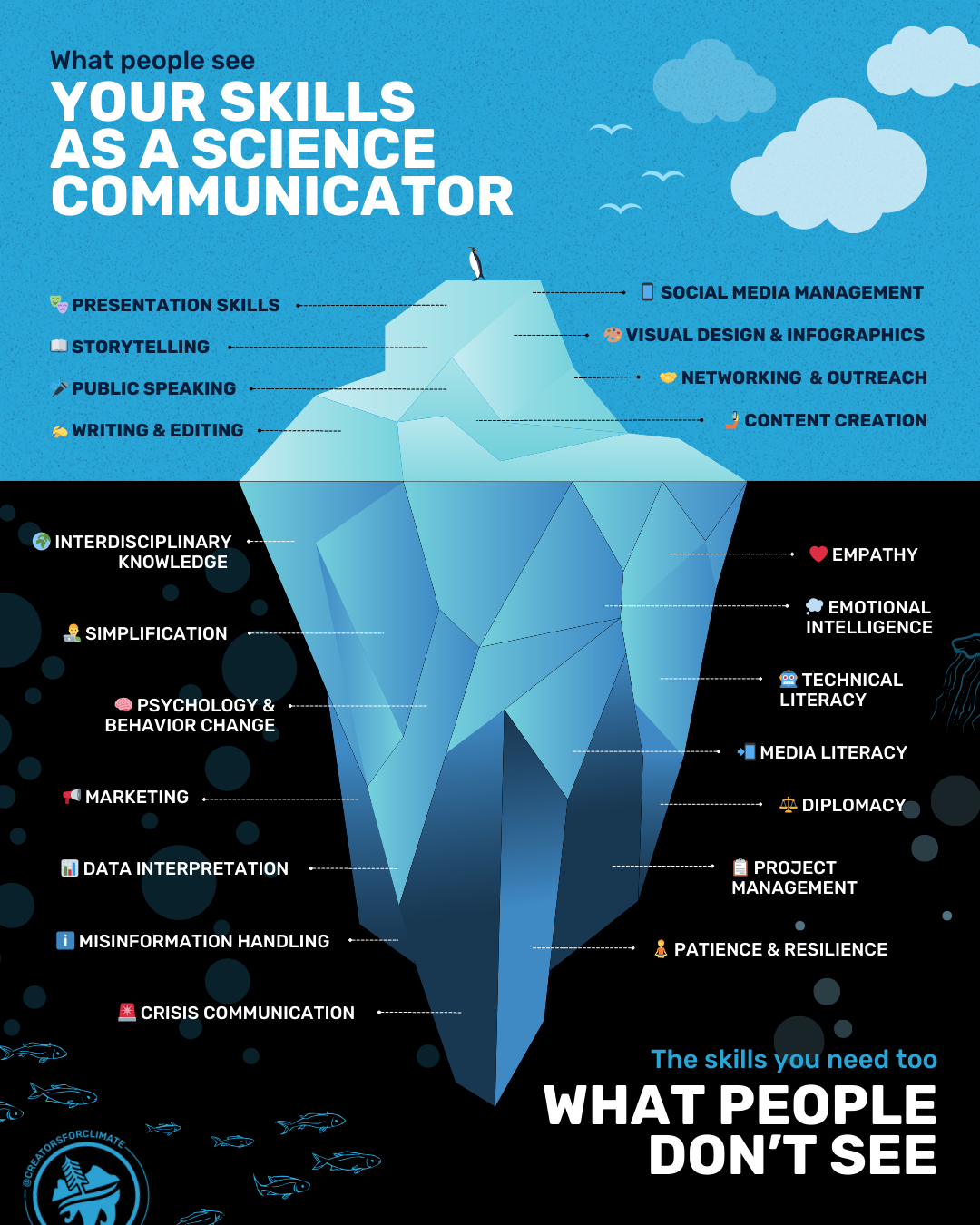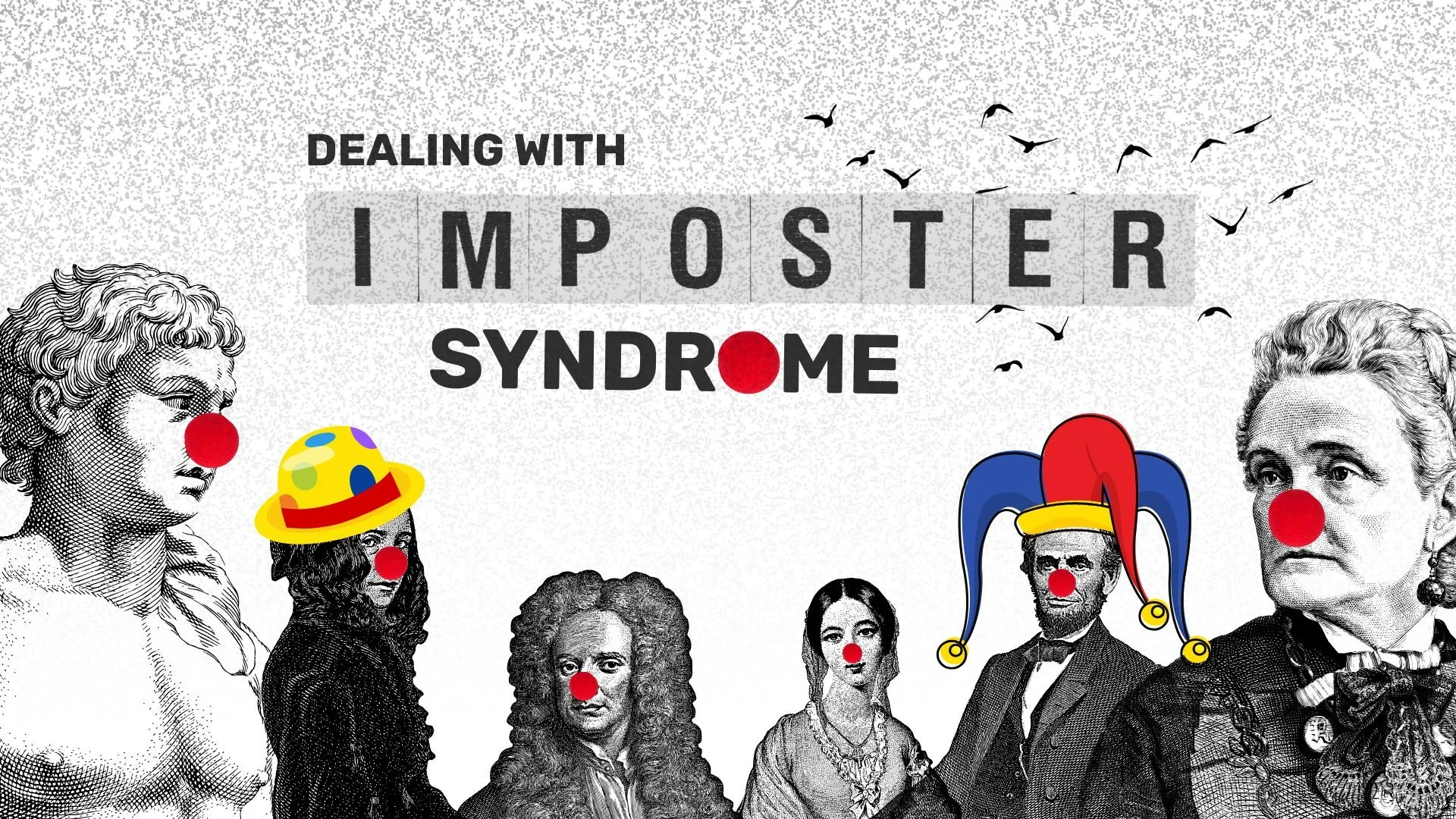We need more Generalists in Science Communication
Many of us are told to niche down, become specialists…. but in climate and science communication, having a broad knowledge base can actually be a strength.
We all know the saying: "A jack of all trades is a master of none", but did you know there is more to that quote? It continues as: "but oftentimes better than a master of one".
This entry is to make a case for the generalists among us. The translators and bridge builders, as I like to call them. People who dare to think beyond current systems and expertise. If you’ve ever felt “not specialized enough,” you might be exactly what this field needs. And maybe you don't even realize it... So, let's get into it!
It isn't always what you expect it to be
Me during my internship studying bottlenose dolphins in 2016. PC: BDRI
For six years, I questioned whether I was doing it all wrong. I had studied marine biology and always dreamed of becoming an expert on whales and dolphins.
But during an internship at the Galician coast in Spain (researching bottlenose dolphins, this was it!) I kept reaching for my camera, instead of the notepad. I didn’t feel attracted to the hard science anymore. You know, writing field notes or working on your data logs. What drew me in was the story. The bigger picture. The why behind the work I was doing there.
Then I remembered the same thing happened during my master’s thesis, where I studied if we could use satellite imagery to detect marine wildlife off the Belgian coast. Again, the science was interesting (besides the statistics, ugh). But in hindsight, it was creating posters about my research and designing my defense presentation that really pulled me in.
Once I saw that pattern, it slowly shifted the perspective I had on my career going forward... And for a good moment there, I felt completely lost. I didn't feel like I had any guidance around me. While most of my friends were starting PhD's, I felt like a 'misfit' in science.
Well... now what?
A case for generalists in sci com
After another internship at a film production company, I started freelancing and creating content. After all this time, in and out of the scientific community, I understood my experiences were making me a communicator instead. And here's something else that became blatantly clear: Communication is a skill based discipline.
So let's have a look at what a generalist (like me, or you?) can bring to the table. Are you someone who:
Sees patterns others don’t (or way before the rest)?
Loves explaining ideas to friends and family?
Gets excited about storytelling and visuals?
Is always learning new skills and finding new tools?
Has too many 'interests' to pick just one lane?
Then you’re probably a generalist too. And in today’s science communication space, that’s a massive asset. Yet we don’t talk enough about this.
Generalists are connectors. That means you are okay leaving the safety of your field, and speak across these 'silos' of knowledge. You like to build bridges between scientists and the public. You are able to connect research with policy. You see the pathways from data toward action, when others might scratch their heads.
With the risk of sounding cocky, but also confident in our abilities: We’re often the reason a scientific idea actually reaches the people it’s meant to help.
I’ve seen this play out again and again in my own freelance work. Sometimes I’m working with marketeers who misunderstand the science, or scientists unsure how to frame their work for policymakers. And that’s fine... that's not their job after all. That’s not what’s in their skillset.
They just need someone in the middle to translate, to adapt the message to the receiver. And that, my friends, is what's in our skillset.
Skills nobody taught me in uni...
When I started thinking about a visual to go with this section, it really dawned on me how many science communication skills stay under the radar.
Because if it's good communication, you're not supposed to see how much work actually went into shaping the message! So take a look at that visual and see how many of those skills feel familiar to you. Are there skills you know you've mastered (or are pretty confident in)? Which are the ones you don't feel comfortable with (yet)? It's a lot, right?
Below are the skills that are really important to me personally:
Written and verbal skills: I guess these are at the basis of good communication? But, how much do you practice this in reality? I learned a lot from just talking in real situations (like with grandma!) to find what language works for different people.
Storytelling: For this I needed to learn to create curiosity. Learn what triggers emotions: what helps people shift into action vs. what gets them overwhelmed. Learning how to break ideas into smaller pieces along a narrative.
Psychology: If you are going to tell stories to connect with people, you also have to understand what makes them listen to you in the first place. I've been going deep into worldviews, emotions and mental models.
Design & visuals: Not going to get too in depth here... just look at the visual above. Infographics, slides or other formats can do what jargon never will.
Marketing & distribution: It's not fun when you spend a week on a video and nobody watches it. I had to learn where to go from there and actually reach the people who want to see my work.
AI literacy: A rather new one, but this is going to create a huge shift in how people interact online (and with each other). Can you use it in sci com? How can AI help simulate audiences or repurpose long form content? As a generalist, AI can be an extension of your own skillset.
These skills also made me understand that being a generalist can actually be an advantage. If you’re also that multi-passionate person, you probably have a head start in more than one of these skills.
Now, back to reality for a moment: If these skills are so important, why are they so underrepresented in the curricula of university science programs? Well... instead of fussing about it, I'd rather be practical. 👇
Putting it into practice
Most of what I do now, a.k.a. running Creators For Climate, creating content, designing workshops… it didn’t come from following a straight path. It came from experimenting and an occasional side quest.
At some point, I started wondering: what if I could help others skip these confusing years of trial and error and start with a little more guidance? Create the resources I didn't have?
And that brings us back to the beginning of this entry. It's how the idea for 'Science Communication 101' was born. I wanted all the exercises in this book to start from the concept: one step at a time, not all at once.
So thank you for being on this journey with me, and for being part of this messy, creative, but deeply human work we call science communication. There will always be a place for people like you at Creators For Climate.
– Tom
Now live:
Latest blog posts










